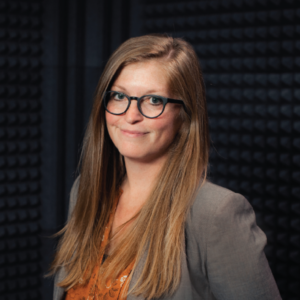Zooming In and Zooming Out
Together, my husband and I own a creative agency. Separately, I work as a practical theologian and he is a filmmaker. Like many of our colleagues and friends, we are busy “building” our careers. And while I admit to daydreams of snorkeling and sleeping until 10 a.m., our chosen trajectories are ones that require long hours and seemingly divergent tasks. Like many of us, busyness is now and will probably always remain a part of our professional lives.
Dan and I have learned that our busyness forces each of us into a reactive work posture. We get so overwhelmed with the pace in which items are added to our to-do lists that we just start tackling things as they come. And because even our good days are filled with divergent tasks, we mistake working reactively for working productively. Too often, instead of doing what either of us has set out to do on any given day or week, we loose our days to the time it takes to shift gears between all of our reactionary tasks. This behavior not only kills our rhythm on projects, it stands in the way of the larger scope of who we want to become as a company and as individual professionals.
In an attempt to combat our own tendencies, we’ve instituted a practice of zooming in and zooming out. We use this language to guide our perception of our work, a framework to step into when we slip into reactionary moments and days. The task of zooming in happens when one or both of us turn on our blinders to the outside world and dives deeply into the details of a particular project or relationship. For Dan this happens most often in the editing bay, or on set with a project. For me, I zoom in when I’m writing a paper for school, or in a meeting with a client. In contrast, sometimes we need to zoom out. Zooming out happens when it’s best for one or both of us to take a bird’s eye view on a situation. For Dan, this happens when he helps pinpoint a company’s narrative arc, relating the presenting moments to a larger set of information. For me, it happens when I work to strategize new projects, or set goals for the upcoming year.
We’re beginning to develop some good habits around the framework of zooming in and out. It helps to give shape to both our communication and habits of work. And while we continue to have our days of reactive work, the more we develop helpful language, the more we combat the tendency to slip into unhelpful work habits.
This article originally appeared in the De Pree Center’s publication, Fieldnotes Magazine. To read more from Michaela in Fieldnotes, please visit http://fieldnotesmagazine.penitent-carriage.flywheelsites.com/author/michaela-odonnell-long/
 Dr. Michaela O’Donnell Long is the senior director of Fuller’s De Pree Center for Leadership. She is also the co-founder of Long Winter Media, a creative agency that helps brands make an impact. Michaela teaches as an adjunct professor of Practical Theology and Leadership at Fuller.
Dr. Michaela O’Donnell Long is the senior director of Fuller’s De Pree Center for Leadership. She is also the co-founder of Long Winter Media, a creative agency that helps brands make an impact. Michaela teaches as an adjunct professor of Practical Theology and Leadership at Fuller.

Michaela O’Donnell
Mary and Dale Andringa Executive Director
Michaela is the Mary and Dale Andringa Executive Director Chair at the Max De Pree Center for Leadership. She is also an assistant professor of marketplace leadership and the lead professor for Fuller Seminary’s Doctor of Global Leadership, Redemptive Imagination in the Marketplace progr...


